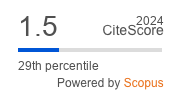Development and Analysis of a Game Design Methodology applied to the Game Honor Keeper Conception
DOI:
https://doi.org/10.5753/jis.2024.4187Keywords:
Game, Game Design, Schell’s LensesAbstract
Game design is a challenging activity that necessitates expertise and competencies from various domains. Teaching new designers involves grasping and implementing methodologies, integrating them into a particular design context, which proves to be a demanding yet essential task. In this paper, we report an experience in the conception of a game where two methodologies were analyzed and combined to describe a process with well-defined sequential activities. To verify the results with the application of this methodology, the developed game was made available for testing with real users, together with a questionnaire that sought to analyze the players’ level of satisfaction with the main aspects of the game. Based on the feedback and examination of responses from test participants, it was evident how adjusting and implementing the method positively influenced the game project in an organized and unified manner, leading to a favorable reception from users.
Downloads
References
Aguiar, B., Correia, W., and Campos, F. (2011). Uso da Escala Likert na Análise de Jogos. In Proceedings of SBGames 2011.
Aversa, D. and Dickinson, C. (2019). Unity Game Optimization: Enhance and extend the performance of all aspects of your Unity games. Packt Publishing, 3ª edition.
Calazans, P. (2020). A jornada dos heróis: 50 exercícios para construir histórias e narrativas inspiradoras. Matrix, 1ª edition.
Campbell, J. (1989). O Herói de Mil Faces. Pensamento, 1ª edition.
Cardoso, J. V. d. S., Schmidt, E. L., and Pereira, R. (2018). E-mundi: Uma ferramenta conceitual para apoiar a análise e o design de jogos. In Proceedings of SBGames 2018.
Carneiro, N., Miranda, D., Pereira, G., Mendonça, G., and Darin, T. (2022). A systematic mapping on player’s profiles: motivations, behavior, and personality characteristics. Journal on Interactive Systems, 13(1):257–273. DOI: https://doi.org/10.5753/jis.2022.2572.
Godoy, A. and Barbosa, E. F. (2010). Game-scrum: An approach to agile game development. Proceedings of SBGames, pages 292–295.
Hunicke, R., Leblanc, M., and Zubek, R. (2004). Mda: A formal approach to game design and game research. AAAI Workshop - Technical Report, 1.
Machado, G. L. (2020). A jornada do herói. Available in: [link]. Last access on 03 February 2024.
Mangeli, E., de Classe, T. M., Macedo, H., Marques, P., Costa, L. M., and Xexéo, G. (2021). Metodologia para desenvolvimento de jogos com proposito de um laboratorio de ludologia. In Anais Estendidos do XX Simpósio Brasileiro de Jogos e Entretenimento Digital, pages 143–151. SBC. DOI: https://doi.org/10.5753/sbgames_estendido.2021.19634.
Matos, J. V. S., Gomes, G. A. M., Júnior, A. J. M. L., do Carmo, R. A. F., and Junior, N. A. C. (2021). Proposta de metodologia para a criação de cenários 3D para jogos digitais. In Anais Estendidos do XX Simpósio Brasileiro de Jogos e Entretenimento Digital, pages 182–190. SBC. DOI: https://doi.org/10.5753/sbgames_estendido.2021.19638.
Projekt, C. and RED, C. P. (2020). Cyberpunk 2077. Available in: [link]. Last access on 03 February 2024.
Rogers, S. (2014). LevelUp! The Guide to Great Video Game Design. Wiley, 2ª edition.
Rollings, A. and Adams, E. (2003). Andrew Rollings and Ernest Adams on Game Design. New Riders, 1ª edition.
Salen, K. and Zimmerman, E. (2004). Rules of Play: Game Design Fundamentals. The MIT Press, 1ª edition.
Schell, J. (2019). Tenth anniversary: The art of game design: A book of lenses. AK Peters/CRC Press.
Silva, H., Souza, I., Santos, C., Caldas, A., and Santos, I. (2023). Uma metodologia de game design orientado ao aprendizado. In Anais do XVI Encontro Unificado de Computação do Piauí, pages 146–154, Porto Alegre, RS, Brasil. SBC. DOI: https://doi.org/10.5753/enucompi.2023.26628.
Stefyn, N. (2019). What is game design and how to become a game designer. Available in: [link]. Last access on 03 February 2024.
Tondorf, D. F. and da Silva Hounsell, M. (2022). Constructs and Outcomes of Fun in Digital Serious Games: The State of the Art. Journal on Interactive Systems, 13(1):386–399. DOI: https://doi.org/10.5753/jis.2022.2605.
Vitor, I. S. R., Rodrigues, E. C. S., Batista, B. G., and Pereira, R. (2023). Iniciando a aventura em Game Design: relato da experiência na concepção do jogo Honor Keeper. In Anais Estendidos do XXII Simpósio Brasileiro de Jogos e Entretenimento Digital, pages 179–189, Porto Alegre, RS, Brasil. SBC. DOI: https://doi.org/10.5753/sbgames_estendido.2023.233774.
Wolf, M. J. P. and Perron, B. (2016). The Routledge Companion to Video Game Studies. Routledge, 1ª edition.
Xavier, G. (2013). A Experiência Gamerama: metodologia e design de jogos eletrônicos para futuros produtores nacionais. PhD thesis, Pontifícia Universidade Católica do Rio de Janeiro - PUC-Rio.
Xavier, G., Farbiarz, J. L., and Farbiarz, A. (2020). The Gamerama experience as a game design methodology in the education of Brazilian university students. Estudos em Design, 28(2). DOI: http://dx.doi.org/10.35522/eed.v28i2.990.
Downloads
Additional Files
Published
How to Cite
Issue
Section
License
Copyright (c) 2024 Ikaro Siqueira Rodrigues Vitor, Elisa de Cássia Silva Rodrigues, Bruno Guazzelli Batista

This work is licensed under a Creative Commons Attribution 4.0 International License.
JIS is free of charge for authors and readers, and all papers published by JIS follow the Creative Commons Attribution 4.0 International (CC BY 4.0) license.








